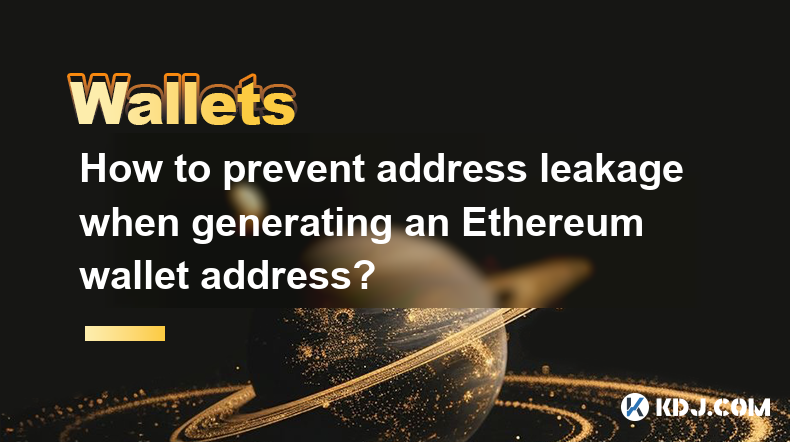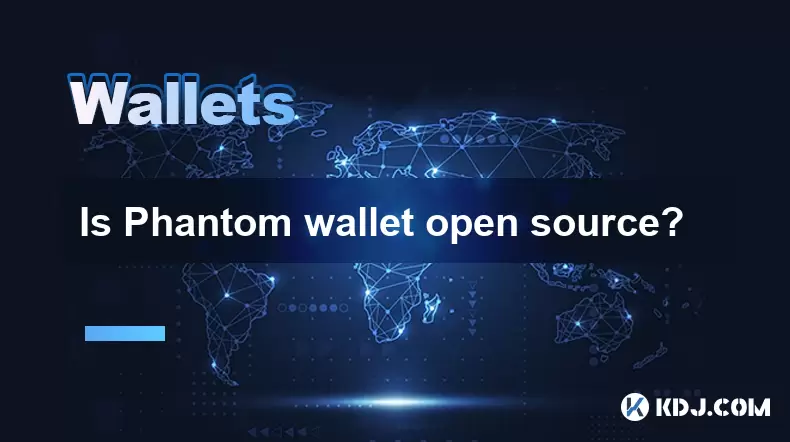-
 Bitcoin
Bitcoin $108,017.2353
-0.81% -
 Ethereum
Ethereum $2,512.4118
-1.58% -
 Tether USDt
Tether USDt $1.0002
-0.03% -
 XRP
XRP $2.2174
-1.03% -
 BNB
BNB $654.8304
-0.79% -
 Solana
Solana $147.9384
-1.76% -
 USDC
USDC $1.0000
-0.01% -
 TRON
TRON $0.2841
-0.76% -
 Dogecoin
Dogecoin $0.1636
-2.09% -
 Cardano
Cardano $0.5726
-1.72% -
 Hyperliquid
Hyperliquid $39.1934
1.09% -
 Sui
Sui $2.9091
-0.59% -
 Bitcoin Cash
Bitcoin Cash $482.1305
0.00% -
 Chainlink
Chainlink $13.1729
-1.54% -
 UNUS SED LEO
UNUS SED LEO $9.0243
-0.18% -
 Avalanche
Avalanche $17.8018
-1.90% -
 Stellar
Stellar $0.2363
-1.69% -
 Toncoin
Toncoin $2.7388
-3.03% -
 Shiba Inu
Shiba Inu $0.0...01141
-1.71% -
 Litecoin
Litecoin $86.3646
-1.98% -
 Hedera
Hedera $0.1546
-0.80% -
 Monero
Monero $311.8554
-1.96% -
 Dai
Dai $1.0000
-0.01% -
 Polkadot
Polkadot $3.3473
-2.69% -
 Ethena USDe
Ethena USDe $1.0001
-0.01% -
 Bitget Token
Bitget Token $4.3982
-1.56% -
 Uniswap
Uniswap $6.9541
-5.35% -
 Aave
Aave $271.7716
0.96% -
 Pepe
Pepe $0.0...09662
-1.44% -
 Pi
Pi $0.4609
-4.93%
How to prevent address leakage when generating an Ethereum wallet address?
Secure your Ethereum funds by using a hardware wallet, or a reputable software wallet with strong security features, generating addresses offline, and rigorously protecting your private key—never share it!
Mar 20, 2025 at 06:42 am

Key Points:
- Understanding the inherent public nature of Ethereum addresses.
- Utilizing hardware wallets for enhanced security.
- Employing software wallets with robust security features.
- Generating addresses offline to minimize online risks.
- Using paper wallets for long-term, offline storage.
- Understanding the risks of using online wallet generators.
- Regularly updating software and firmware.
- Best practices for handling private keys.
How to Prevent Address Leakage When Generating an Ethereum Wallet Address?
Ethereum addresses, unlike bank account numbers, are inherently public. They are designed to be shared to receive funds. The key to security lies not in hiding the address, but in protecting the associated private key, which grants control over the funds. Address leakage isn't about concealing the address itself, but preventing unauthorized access to the private key linked to it.
The most effective way to prevent address leakage is to use a hardware wallet. These devices generate and store your private keys offline, making them incredibly secure. They act as a physical barrier between your keys and the internet, drastically reducing the risk of hacking or malware compromising your funds. Leading brands like Ledger and Trezor offer reputable hardware wallet options.
If a hardware wallet isn't feasible, choose a reputable software wallet. Thoroughly research the software's reputation and security features before use. Look for features like multi-signature transactions, two-factor authentication, and strong encryption. Always download software directly from the official website to avoid malicious downloads. Regularly update your wallet software to benefit from the latest security patches.
Generating addresses offline adds an extra layer of security. If you use an online wallet generator, your computer might be compromised, leading to private key theft. Generating addresses offline eliminates this risk. You can use offline wallet generation tools or even specialized software designed for this purpose.
Paper wallets offer a robust, offline storage solution for long-term holdings. This method involves generating your private key offline and printing it onto paper, storing it securely in a safe place. While convenient for long-term storage, remember that paper wallets are vulnerable to physical damage and theft. Handle them with extreme care.
Avoid using online wallet generators unless absolutely necessary and only from well-established and trusted sources. Many free online generators lack the security features of reputable software or hardware wallets, increasing your vulnerability to scams and attacks. Prioritize security over convenience when choosing a wallet generation method.
Maintaining robust security practices extends beyond wallet generation. Regularly update the firmware on your hardware wallets and software on your software wallets. These updates often include critical security patches that address vulnerabilities. Neglecting these updates can expose your wallet to exploits.
The most critical aspect of Ethereum wallet security is the proper handling of your private key. Never share your private key with anyone. Treat it like your bank PIN – never reveal it, and keep it in a secure, offline location. Any website or individual requesting your private key is likely attempting to steal your funds.
Common Questions:
Q: What if I accidentally reveal my Ethereum address?
A: Revealing your Ethereum address itself is not a security risk. The address is public and designed to be shared. The danger lies in compromising your private key, which allows someone to control the funds associated with that address.
Q: Can I use the same Ethereum address for multiple transactions?
A: Yes, you can reuse the same Ethereum address for multiple transactions. This is standard practice. The security of your funds is tied to the security of your private key, not the reuse of the address.
Q: Are all software wallets equally secure?
A: No. The security of a software wallet depends on its design, implementation, and the security practices of its developers. Research the reputation and security features of any software wallet before using it. Choose established and well-regarded options.
Q: How often should I update my hardware wallet's firmware?
A: Follow the manufacturer's recommendations for firmware updates. These updates often contain critical security patches. Check for updates regularly, and apply them promptly.
Q: What should I do if I suspect my private key has been compromised?
A: Immediately secure your funds by moving them to a new, secure wallet. Report the incident to relevant authorities and the exchange or service provider where you believe the compromise occurred. Change all related passwords and monitor your accounts closely.
Disclaimer:info@kdj.com
The information provided is not trading advice. kdj.com does not assume any responsibility for any investments made based on the information provided in this article. Cryptocurrencies are highly volatile and it is highly recommended that you invest with caution after thorough research!
If you believe that the content used on this website infringes your copyright, please contact us immediately (info@kdj.com) and we will delete it promptly.
- Cryptos in July 2025: Massive Gains or Just Hype?
- 2025-07-05 20:30:13
- Pepe's EVM Layer 2 Meme Coin Mania: What's the Hype?
- 2025-07-05 20:50:12
- Shiba Inu, Dogecoin, and the Crypto Skyrocket: What's Making These Memes Soar?
- 2025-07-05 21:10:12
- Tokenized Stocks: Robinhood, Gemini, and the NYSE Threat
- 2025-07-05 21:10:12
- Altcoin Adventures: Navigating the Pepe Fork Frenzy and Solana's Summer Swings
- 2025-07-05 21:15:12
- Hong Kong's Tokenised Bond Leap: Zero Stamp Duty Sparks Web3 Ambitions
- 2025-07-05 20:30:13
Related knowledge

How to cancel a pending transaction in Phantom wallet?
Jul 03,2025 at 07:21pm
Understanding Pending Transactions in Phantom WalletA pending transaction in the Phantom wallet occurs when a user initiates a transfer or interaction with the Solana blockchain, but it hasn't yet been confirmed by the network. This can happen due to various reasons such as low transaction fees, network congestion, or incorrect gas settings. It's import...

How to see the estimated value of my tokens in Phantom wallet?
Jul 04,2025 at 12:21am
What is Phantom Wallet?Phantom wallet is one of the most popular cryptocurrency wallets designed for the Solana blockchain. It allows users to store, send, receive, and manage various tokens built on Solana, including SPL tokens and NFTs. The wallet offers a user-friendly interface, making it accessible for both beginners and advanced users in the crypt...

How to lock my Phantom wallet extension?
Jul 03,2025 at 11:14am
What Is the Phantom Wallet and Why Lock It?The Phantom wallet is a popular non-custodial cryptocurrency wallet designed for interacting with the Solana blockchain. Supporting both browser extensions and mobile apps, Phantom allows users to store, send, receive, and stake SOL tokens, as well as interact with decentralized applications (dApps). Securing y...

Does Phantom wallet offer two-factor authentication (2FA)?
Jul 03,2025 at 09:00am
Understanding Phantom Wallet and Its Security FeaturesPhantom wallet is a widely used non-custodial cryptocurrency wallet that supports the Solana blockchain. It allows users to store, send, receive, and interact with decentralized applications (dApps) seamlessly. As security is a top priority for any crypto wallet user, security features like two-facto...

What is "rent" on Solana and how does it affect my Phantom wallet?
Jul 02,2025 at 08:35pm
Understanding 'Rent' on SolanaIn the context of Solana, the term 'rent' refers to a storage fee that users pay for maintaining data on the blockchain. Unlike Ethereum, where storage costs are paid once via gas fees during contract deployment, Solana implements a recurring cost model to ensure efficient usage of network resources. This means that any acc...

Is Phantom wallet open source?
Jul 03,2025 at 12:29am
What is Phantom Wallet?Phantom wallet is a non-custodial cryptocurrency wallet primarily designed for the Solana blockchain. It allows users to store, send, receive, and interact with decentralized applications (dApps) on the Solana network. The wallet is available as a browser extension and mobile application, offering a seamless experience for both be...

How to cancel a pending transaction in Phantom wallet?
Jul 03,2025 at 07:21pm
Understanding Pending Transactions in Phantom WalletA pending transaction in the Phantom wallet occurs when a user initiates a transfer or interaction with the Solana blockchain, but it hasn't yet been confirmed by the network. This can happen due to various reasons such as low transaction fees, network congestion, or incorrect gas settings. It's import...

How to see the estimated value of my tokens in Phantom wallet?
Jul 04,2025 at 12:21am
What is Phantom Wallet?Phantom wallet is one of the most popular cryptocurrency wallets designed for the Solana blockchain. It allows users to store, send, receive, and manage various tokens built on Solana, including SPL tokens and NFTs. The wallet offers a user-friendly interface, making it accessible for both beginners and advanced users in the crypt...

How to lock my Phantom wallet extension?
Jul 03,2025 at 11:14am
What Is the Phantom Wallet and Why Lock It?The Phantom wallet is a popular non-custodial cryptocurrency wallet designed for interacting with the Solana blockchain. Supporting both browser extensions and mobile apps, Phantom allows users to store, send, receive, and stake SOL tokens, as well as interact with decentralized applications (dApps). Securing y...

Does Phantom wallet offer two-factor authentication (2FA)?
Jul 03,2025 at 09:00am
Understanding Phantom Wallet and Its Security FeaturesPhantom wallet is a widely used non-custodial cryptocurrency wallet that supports the Solana blockchain. It allows users to store, send, receive, and interact with decentralized applications (dApps) seamlessly. As security is a top priority for any crypto wallet user, security features like two-facto...

What is "rent" on Solana and how does it affect my Phantom wallet?
Jul 02,2025 at 08:35pm
Understanding 'Rent' on SolanaIn the context of Solana, the term 'rent' refers to a storage fee that users pay for maintaining data on the blockchain. Unlike Ethereum, where storage costs are paid once via gas fees during contract deployment, Solana implements a recurring cost model to ensure efficient usage of network resources. This means that any acc...

Is Phantom wallet open source?
Jul 03,2025 at 12:29am
What is Phantom Wallet?Phantom wallet is a non-custodial cryptocurrency wallet primarily designed for the Solana blockchain. It allows users to store, send, receive, and interact with decentralized applications (dApps) on the Solana network. The wallet is available as a browser extension and mobile application, offering a seamless experience for both be...
See all articles

























































































